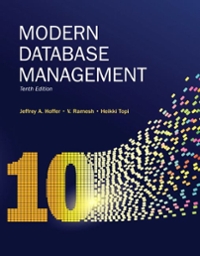Question
CASE B: participatory fashion upcycling Your organization is testing a new business model to upcycle second-hand clothes and then redistribute them through an e-commerce and
CASE B: participatory fashion upcycling
Your organization is testing a new business model to upcycle second-hand clothes and then redistribute them through an e-commerce and local retailers. Basically, your business model consists in:
- collecting second-hand clothes directly from people through dozens of collection points spread all around the city of Barcelona
- transporting collected clothes towards a few centralized warehouses and consequently sorting the clothes by types, colors, quality and so on.
- Distributing the separated clothes to several local tailors, dressmakers and fashion designers who are in charge to create new clothes
- Selling the upcycled clothes through an ecommerce and local retailers (or temporary events)
Your company has grown rapidly during the first phase and now you need to manage it with an appropriate information system to deal with some problems you have noticed:
1) Decrease in participation: after an initial growing phase, you notice that the number of clothes delivered to the collection points decreased. This can be due to a saturation point as well as to the lack of a feedback system for customers that are not properly engaged in the process.
2) Sorting and distributing: During the sorting phase, it was noted that it is difficult to supply exactly the required clothes to the local tailors who will recycle them. Moreover, in many cases, used clothes have to be supplemented with new fabrics that have to be delivered on time.
3) Selling: the ecommerce is working properly although several upcycled clothes remain for a long time in your warehouse, while local retailers exhibited a difficulty to sell all your products because of consumers' preferences.
questions:
1. Please provide a general description of a hypothetical Information system highlighting main aims, functions, input/output, and required data.
2. Please detail the relationships with the different dimensions and involved actors (internal and external) of your IS.
3. Please explicitly describe the relationships with other IS types, the different business functions and hierarchical levels within the organization
4. Please describe how your information system may improve the management of the organization at all levels (operational, middle and top management)
5. Please provide a general scheme/flowchart of the designed IS (required input/output, other IS)
6. Please provide a second "overlapping" scheme with the business functions, hierarchical levels, external and internal stakeholders/actors
7. Please provide a third "overlapping" scheme highlighting the specific IT components (hardware and software).
Each scheme can be briefly and concisely described by integrating what already written within the open questions 1 to 4.
Step by Step Solution
There are 3 Steps involved in it
Step: 1

Get Instant Access to Expert-Tailored Solutions
See step-by-step solutions with expert insights and AI powered tools for academic success
Step: 2

Step: 3

Ace Your Homework with AI
Get the answers you need in no time with our AI-driven, step-by-step assistance
Get Started


